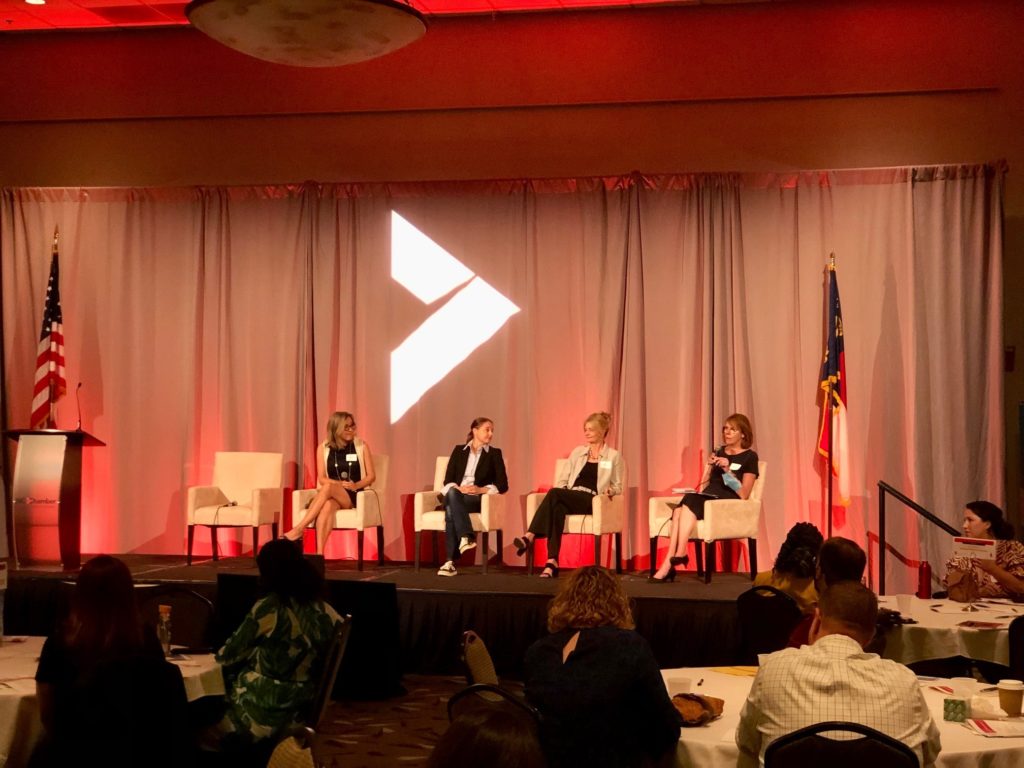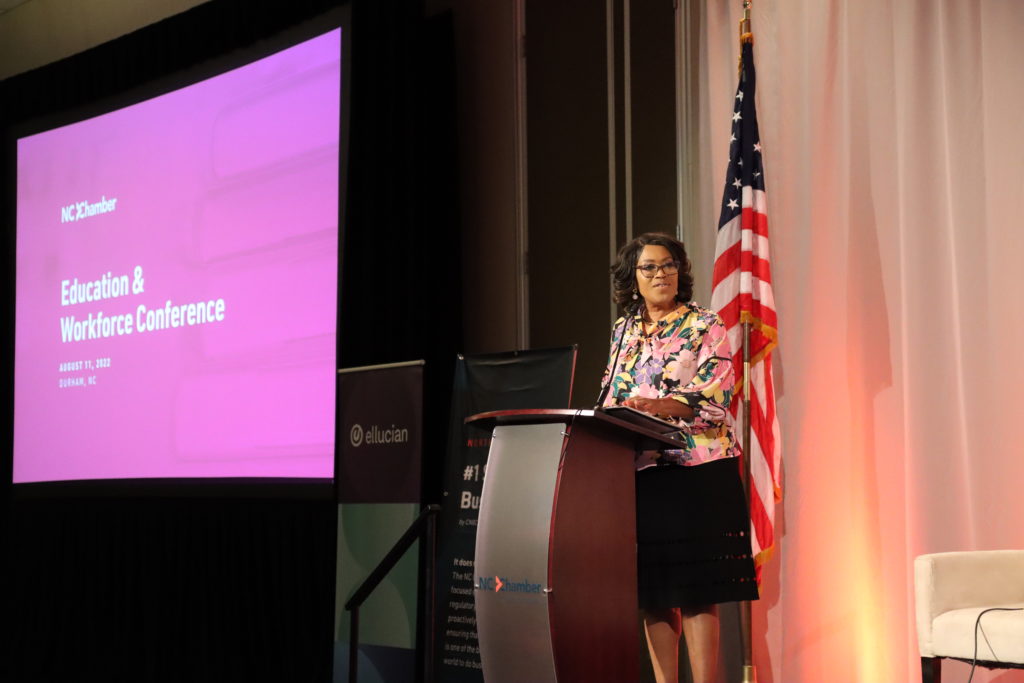NC Chamber Education & Workforce Conference: Navigating Solutions to Employer Talent Crisis and Student Workforce Readiness
During last week’s Education & Workforce Conference, NC Chamber Director of Government Affairs Debra Derr gave opening remarks that set the stage for the engaging and solution-minded conversations that took place between business leaders, educators, and government officials.
She said it well, stating, “We all know that the business community and education system cannot succeed nor solve [today’s] problems without the other, so today’s conversations will focus on what we’ve already learned, what we’re doing well, and how we improve from here.”
NC Chamber Foundation President Meredith Archie, who was the next speaker to take the stage, kicked off her comments discussing one of the major steps taken over the past year to solve our state’s talent crisis, which was to launch the Foundation’s Institute for Workforce Competitiveness.
Archie discussed how the Institute has already been actively convening, collecting, and connecting business and education stakeholders across the state to share insights and is coming up with solutions and recommendations. She also explained how the Institute is a great example of how “we’re all in this together”—and that partnerships are key to recruiting and retaining a competitive and diverse workforce for North Carolina.
Additionally, she walked the audience through the goals of NC Chamber Foundation’s Talent Pipeline Management (TPM), which she touted as a great tool for any employer to have in their toolbox. She showed TPM successes firsthand through a video that was debuted at the conference, featuring employers in Gaston County which are currently utilizing the program at their companies.
Following the video, Archie said, “The challenges [employers face] are multifaceted, meaning that the solutions will be layered, and will require an unwavering bias for action. We believe that it’s important to share the great work that’s already taken place in the state and replicate it or scale it in other regions.”

Developing a Workforce to Meet NC’s Business Needs
During the conference, Kristie Van Auken, Special Advisor to the Superintendent, North Carolina Department of Public Instruction, discussed how the Department’s grassroots visits with stakeholders across the state have helped them script out and reframe what education outcomes student need. Specifically, they’ve discussed what children need to know, skills and durable skills that work, and the mindsets are that are important for students to know. Van Auken explained that these are all important considerations so students can plan the post-secondary education path of their choice.
She also walked through the Department’s Portrait of a Graduate initiative, which aims to enhance classroom learning, helping prepare North Carolina’s students for technology, human skills, and innovation. The finalized product will help guide policymakers toward a new testing and accountability system to assess these essential skills and competencies.
While there were many great examples given, panelist Anne Jones of District C explained how her organization is working hard to fix student readiness and giving students the real-life skills needed to succeed in the work world—thus fueling the talent pipeline for our state’s employers. Through what’s known as District C’s Teamship experience, teams of students are given real problems impacting local businesses and have the opportunity to solve them with the support of an expert coach. They also regularly meet and directly work with those businesses they’re assisting.
One major focus of the conference was discussing North Carolina’s educational attainment goal, which is to reach 2 million residents aged 25 to 44 with a meaningful, high-quality credential or postsecondary degree by 2030. That’s about 67% of adults in that age bracket. During the educational attainment session, legislators spoke about what it will take to move the needle on that goal. Sen. Batch (D-Wake) discussed the success of North Carolina’s early colleges and apprenticeships, while Rep. Ashton Clemmons (D-Guilford) stated that the biggest ROI comes investment comes early, starting at the pre-K level.
Eliminating Barriers in the Job Market
Another common theme throughout the conference included discussing solutions to increase diversity in the workforce helping women return to the workforce post-pandemic, addressing the housing crisis, and solving childcare obstacles. Additionally, another panel focused on untapped resources and talent pools, which focused heavily on recruiting from the veteran, second chance, and neuro-diverse populations. The panelists talked about the set of skills and transferable skills that a candidate brings to a job and not necessitating a certain higher-education degree merely to check that box. They also discussed the importance of embracing these untapped talent pools as part of a company culture.

In closing
The NC Chamber was honored to have Secretary of Commerce Machelle Sanders as its closing session keynote speaker. She talked heavily about the Department’s First in Talent Plan for NC, which offers a roadmap and recommendations for economic development in NC and serves as a reference point for NC policymakers and economic developers. Sanders also emphasized the importance of broadband in the Department’s First in Talent Plan—stating that every corner of our state must have access to it.
She also spoke proudly of the many major company and economic development announcements coming to North Carolina, with a few words of caution: “We don’t want to be recognized as bringing all these wonderful jobs but not be able to fill all these wonderful jobs. We must work diligently and purposefully together to double down on what we have been recognized for.”
All photos from the conference can be found at this link.